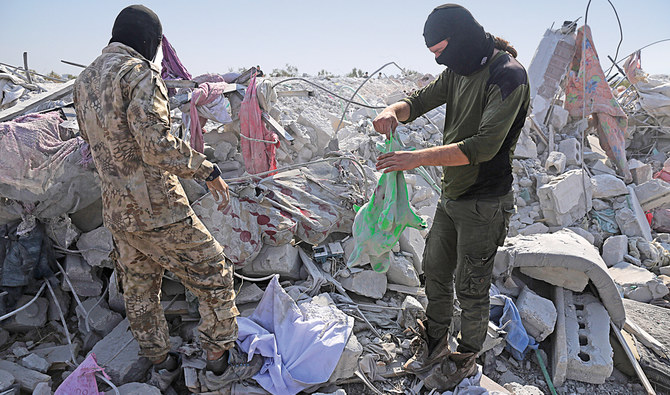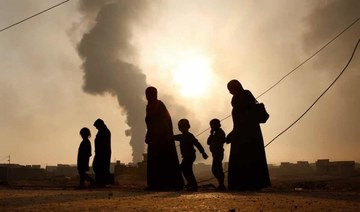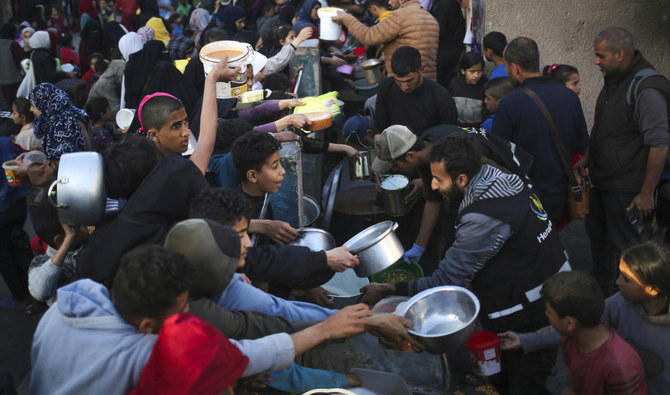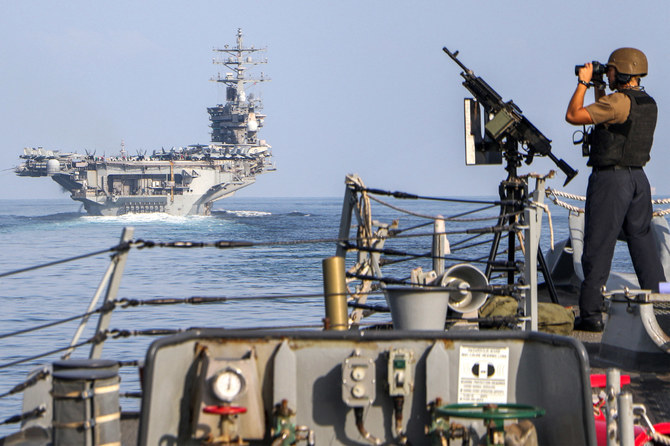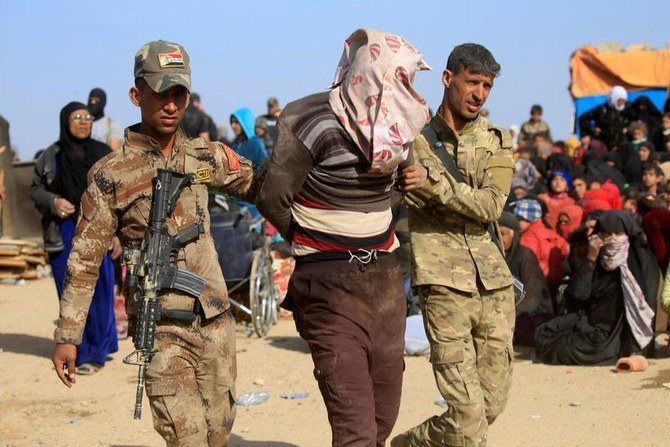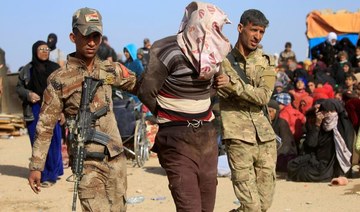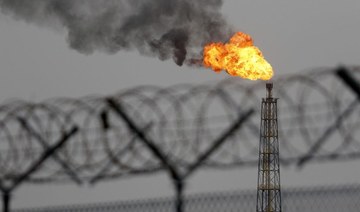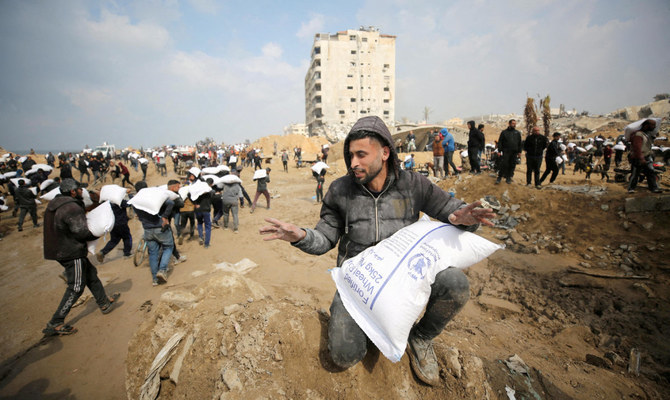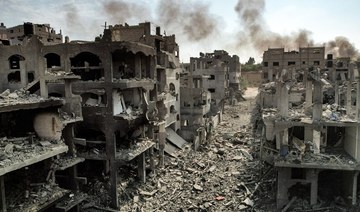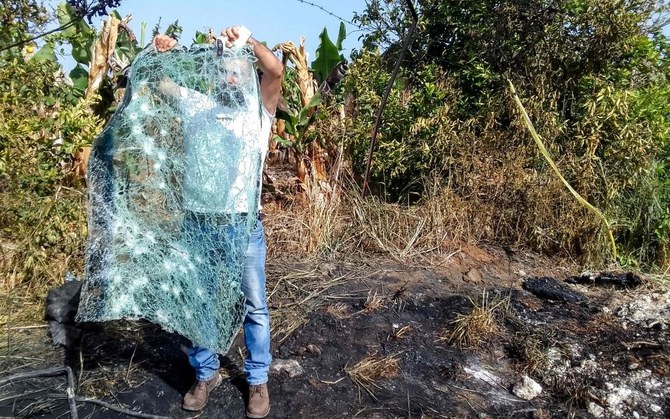BEIRUT: The Daesh group’s self-styled “caliphate” across parts of Iraq and Syria seemed largely defeated last year, with the loss of its territory, the killing of its founder in a US raid and an unprecedented crackdown on its social media propaganda machine.
But tensions between the US and Iran and the resulting clash over the US military presence in the region provide a comeback opportunity for the extremist group, whose remnants have been gradually building up a guerrilla campaign over the past year, experts say.
American troops in Iraq had to pause their operations against Daesh for nearly two weeks amid the tensions. From the other side, Iranian-backed Iraqi militiamen who once focused on fighting the militants have turned their attention to evicting US troops from the Middle East.
In the meantime, Daesh group sleeper cells intensified ambushes in Iraq and Syria in the past few weeks, killing and wounding dozens of their opponents in both countries. Activists and residents say the attacks have intensified since the US killed top Iranian general Qassem Soleimani in a Jan. 3 drone strike at Baghdad’s airport.
It is not clear whether the uptick is related to the repercussions that followed from the strike, and it is possible some of the attacks had been planned before Soleimani’s killing. US officials deny seeing any particular increase in Daesh activities. “They haven’t taken advantage of it, as far as we can see,” said James Jeffrey, the State Department envoy to the international coalition fighting Daesh.
HIGHLIGHTS
• On Jan. 14, Daesh launched a cross border attack from Syria into Iraq, killing an Iraqi officer.
• A day later, Daesh attacked Iraqi force in Salaheddine, killing two soldiers and wounding five.
• Two days later, an Iraqi intelligence major was killed in a car bomb north of Baghdad.
Mervan Qamishlo, a spokesman for Syria’s US-backed Kurdish-led force, said the intensification of Daesh attacks began even earlier, since October, when Turkey began a military operation against Kurdish fighters in northern Syria.
Still, the militants clearly gained at least temporary breathing room as the killing of Soleimani, along with a senior Iraqi militia leader, brought Iran and the US to the brink of all-out war and outraged Iraqis, who considered the strike a flagrant breach of sovereignty.
On Jan. 5, Iraq’s Parliament called for the expulsion of the 5,200 US troops from the country who have been there since 2014 on a mission to train Iraqi forces and assist in the fight against Daesh. The US-led coalition then put the fight against Daesh on hold to focus on protecting its troops and bases. It said last week that it had resumed those operations after a 10-day halt.
“This tension will for sure help Daesh, as all forces fighting it become busy with other matters,” warned Abdullah Suleiman Ali, a Syrian researcher who focuses on terror groups.
Among other things, he said Iran-US tensions help give Daesh the opportunity to restructure as its new leader, Abu Ibrahim Al-Hashimi Al-Qurayshi, strengthens his grip. Al-Qurayshi was announced in the post after longtime leader Abu Bakr Al-Baghdadi was killed by a US raid in Syria in October.
“The day the American-Iranian clash began, Daesh started intensifying its attacks,” said Rami Aburrahman, who heads the Britain-based Syrian Observatory for Human Rights, an opposition war monitor.
On Jan. 14, Daesh launched a cross-border attack from Syria into Iraq, killing an Iraqi officer. A day later, Daesh fighters attacked an Iraqi force in the central Salaheddine region, killing two soldiers and wounding five. Two days later, an Iraqi intelligence major was killed in a car bomb north of Baghdad.
One of the deadliest attacks occurred in Syria on Jan. 14, when Daesh fighters stole some 2,000 cattle from a village near the eastern town of Mayadeen. One of the four shepherds that own the cattle informed authorities, and a Syrian regime force was sent to the area, where they were met by Daesh fire.
As the forces returned to their base, Daesh gunmen laid an ambush, killing 11 troops and pro-regime fighters as well as two shepherds.
Daesh published photos showing bodies of soldiers said to have been killed in the attack, along with a destroyed armored vehicle and an overturned truck.
On the same day, seven shepherds were found shot dead west of the eastern city of Deir Ezzor. On Jan. 4, 21 shepherds were found shot in the back of their heads, their hands were tied behind their backs.
Dozens of members of the US-backed Kurdish-led Syrian democratic Forces have been killed over the past months in attacks claimed by Daesh as well.
With the painful strikes, Daesh is “taking advantage to boost its influence” and send a message to their supporters that they are still strong, said Omar Abu Laila, an activist from Deir Ezzor now based in Europe.
“Some civilians don’t dare leave their homes after sunset because of fear of Daesh,” Abu Laila said.
The group is also trying to restore its presence on social media and the Internet — a key component to its ability to raise financial support from abroad and recruit new fighters.
Daesh members and supporters have for years sown fear and projected power with the grisly videos they released on social media showing beheadings, amputations and victims burned to death or thrown from buildings.
In recent weeks, European authorities, coordinated by Europol, have shut down thousands of Daesh propaganda platforms and communication channels in an unprecedented crackdown. In particular, the crackdown forced Daesh’s news agency and other channels off the Telegram text messaging system, the group’s primary outlet since 2015.
“The Europol campaign of November had a massive impact on Daesh support networks on Telegram,” said Amarnath Amarasingam, a terrorism researcher at Queen’s University in Ontario, Canada.
Since then, the extremists have shifted to other messaging platforms including the Russia-based TamTam, Canada-based Hoop Messenger and BCM Messenger. They also tried to get back on Twitter using hacked accounts, Amarasingam said.
So far, those efforts have not been very successful as international authorities work to chase them down on those outlets as well.
“None of this is really matching the presence they had on Telegram from 2015 onwards,” Amarasingam said.



